MercoPress. South Atlantic News Agency
Tag: Inflation
-
Monday, April 25th 2022 - 09:30 UTC
UK inflation: Salmon farming company agrees to pay above the real Living Wage, £10.40 per hour

Scottish Sea Farms, now the country’s second-largest producer of farmed salmon, has committed to paying above the real Living Wage in a bid to help those of its employees and their families hit hardest by the soaring cost of living.
-
Tuesday, April 19th 2022 - 09:42 UTC
Record, two Falklands' full year inflation in a month in Argentina

The Falkland Islands inflation during the last decade, on average has been below 4% annually. This however does not mean the Falklands are not vulnerable to the volatility of world energy and food prices.
-
Saturday, April 16th 2022 - 10:00 UTC
Inflation in LatAm highest in 15 years, IMF says
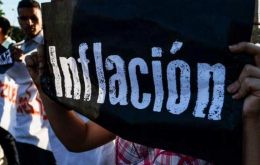
According to the International Monetary Fund (IMF), inflation in Latin America's leading economies has reached its highest levels in 15 years. The finance agency Friday reported that these results were the consequence of the “impact on the pandemic and the war between Russia and Ukraine.”
-
Friday, April 15th 2022 - 09:28 UTC
“Inflation pandemic” displaces Covid-19 in leading countries

United Kingdom inflation accelerated to 7% in the 12 months through March, the highest annual rate since March 1992, the Office for National Statistics said. A day before the United States US Labor Department said that its consumer price index jumped 8.5% last month.
-
Thursday, April 14th 2022 - 09:52 UTC
Argentina's Central Bank raises reference rate to cope with inflation

Argentina's Central Bank (BCRA) has adjusted the basic interest rate by 250 basis points to 47% per annum in nominal terms in a move to counter the effects of rampant inflation.
-
Monday, April 11th 2022 - 09:32 UTC
Brazil's inflation for March 2022 disclosed: highest in 28 years
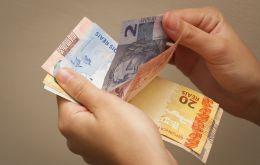
Brazilian economic authorities have last week disclosed the monthly inflation for March of 2022: It was 1.62%, the highest for the same period in the last 28 years, making the year-on-year accumulation reach 11.30%, way above expectations.
-
Saturday, April 9th 2022 - 08:20 UTC
Chile's inflation for March above market projections
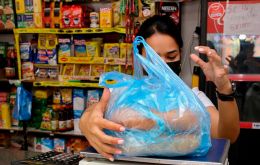
For a month that began under one president and finished under the new one, Chile's inflation for March of 2022 reached 1.9%, slightly above market projections of up to 1.4%.
-
Friday, April 8th 2022 - 09:55 UTC
Argentina: Wage bargaining cushions margin to fight inflation
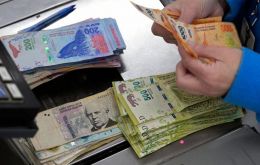
Argentine labor unions are negotiating wage adjustments of around 60% in an attempt to outpace the country's rampant inflation, it was reported in Buenos Aires.
-
Friday, April 8th 2022 - 09:19 UTC
Venezuela's monthly inflation stays within one-digit figures

Venezuela's economic authorities have reported one-digit monthly inflation once again for a country that had grown accustomed to astronomic figures. However, independent observers consider this data to be absurd.
-
Wednesday, April 6th 2022 - 09:32 UTC
Paraguay advised to monitor inflation and tackle State spending
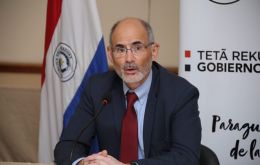
The International Monetary Fund (IMF) has issued a recommendation to the Government of Paraguay IMF to keep an eye on inflation and move forward with structural reforms in addition to improving State spending.
